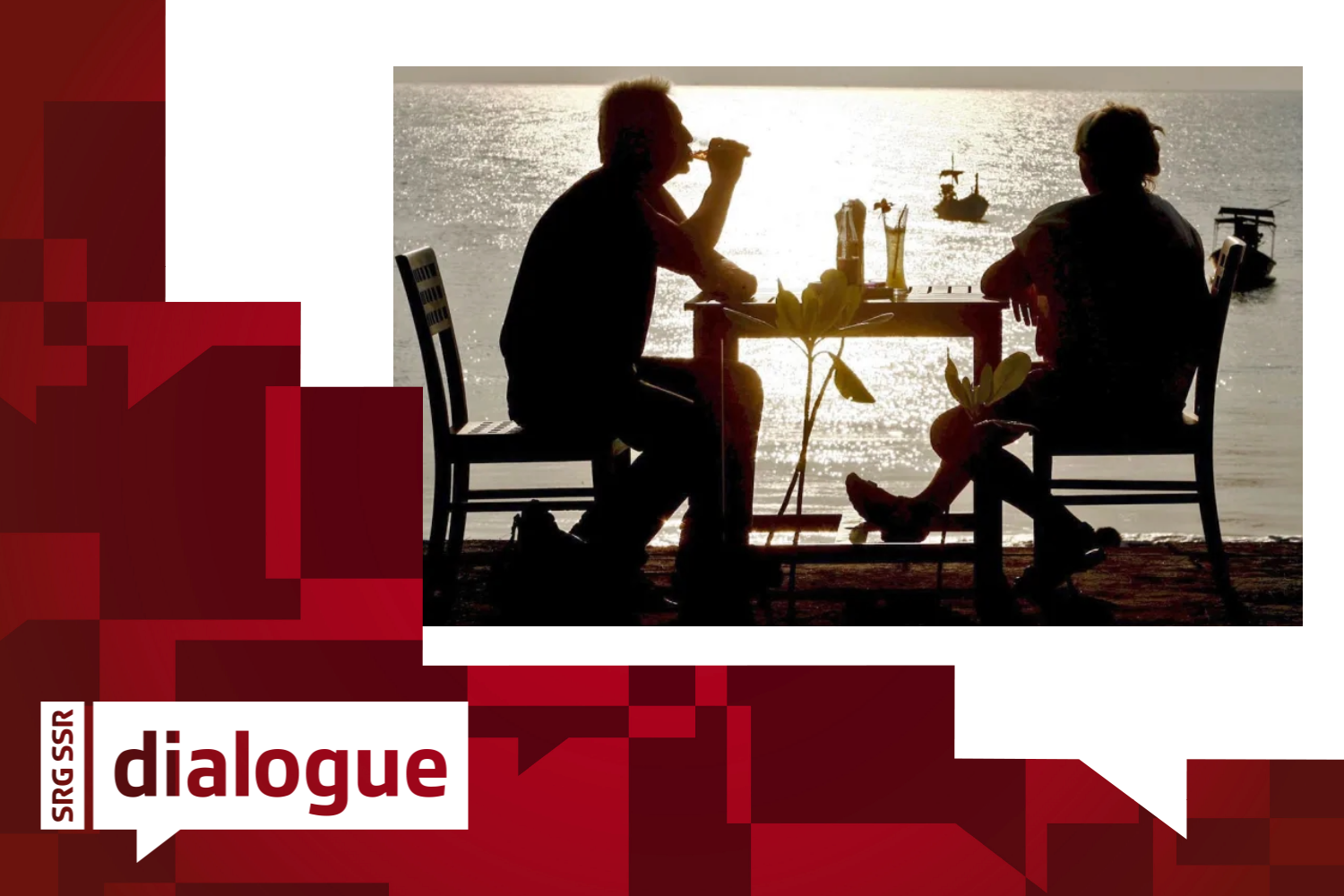
Poll: Swiss are fed up with social media

Social media is being used less in Switzerland, according to the latest figures. One of the reasons: the platforms are no longer truly social.
Almost 7% of people living in Switzerland and the Swiss Abroad say they do not use social media – Instagram, Whatsapp, YouTube, Facebook, etc. This is according to the second edition of the survey “How are you, Switzerland?”, which was published last week by the Swiss Broadcasting Corporation (SBC), SWI swissinfo.ch’s parent company.
In the first survey in 2023, this figure was lower with less than 5% of respondents saying they did not use such services at all.
The results of “How are you, Switzerland?” are based on a representative survey of 51,182 Swiss residents and Swiss Abroad. It was conducted by the research institute gfs.bern in May and June 2024 on behalf of the SBC. This is the second time this survey has been carried out. Compared to the previous year’s edition, some of the questions were new or different, but most were identical.
In all, 3,000 respondents were selected from an online panel by gfs.bern in order to obtain a representative sample of the Swiss population (16 years and older). The sample was stratified according to language region and proportioned according to age and gender.
The other respondents completed the questionnaire online. They were invited to do so via the SBC channels but decided for themselves whether they wanted to participate. This survey method is not representative. Representativeness is achieved by means of specific data weighting and data validation procedures. The questionnaire consisted of around 300 questions. To ensure that an interview did not exceed about 20 minutes, gfs.bern did not ask the same questions to all respondents. The sampling error is +/- 1.8 % at 50:50 and 95% probability.
Although social media is part of many people’s everyday lives, its use is declining: in 2023, 77% of respondents said they used social media on a daily basis. In 2024, this figure has dropped to around 70%.
Platforms hardly live up to their promises anymore
Although not a landslide shift – the final report on the survey speaks of a “marginal decline in the frequency of use” – this trend is in line with the general sense of unease that has been growing around social media for some time now.
This is not just the case in Switzerland: all over the world, platforms such as Facebook, Instagram and X (formerly Twitter) are struggling with dissatisfied users. One of the reasons behind this is that many social media platforms no longer live up to their promise of being social.
While in the early days, Facebook and the like did actually show us what our friends had posted, what we see today is determined by algorithms. This is often content that has nothing to do with our immediate social environment, but which the platforms hope will keep us in front of the screen for a long time – where we see more and more adverts.

More
Poll: Switzerland is rather sceptical about the future
‘Compulsion loops’ to keep us glued to the screen
To keep us engaged for as long as possible and to encourage us to return quickly, the platforms rely on mechanisms known from games and casinos: small treats, such as a like, are rewarded by the brain with a dopamine release and awaken the desire for even more rewards. This creates a behavioural loop – a so-called “compulsion loop” – which is difficult to break.
In the long run, this can be both tiring and frustrating – as anyone will know who has ever had to realise with a sore thumb and a guilty conscience that they have spent the past two hours compulsively scrolling through Instagram.
In the SBC-survey, more people said they would be happier if they spent less time on social media compared to last year (2024: 49%, 2023: 43%).

More
Poll: Swiss Abroad pensioners are enthusiastic while workers struggle
Critical stance, but no regulation yet
However, the Swiss are not only increasingly concerned about their own well-being when it comes to social media: some four out of five respondents believe that social media provide one-sided information and divide society – a proportion that was also several percentage points lower the previous year.
When it comes to regulating platforms, however, Swiss politics has not made much progress: the government had in fact announced a corresponding consultation draft for the end of March. Where appropriate, it should be in line with the EU’s Digital Services Act (DSA), strengthen users’ rights and oblige platforms to be more transparent. But as many new legal issues have arisen, the bill is not expected until autumn.
Adapted from German by Claire Micallef/ts

More
Newsletters

In compliance with the JTI standards
More: SWI swissinfo.ch certified by the Journalism Trust Initiative

























You can find an overview of ongoing debates with our journalists here . Please join us!
If you want to start a conversation about a topic raised in this article or want to report factual errors, email us at english@swissinfo.ch.